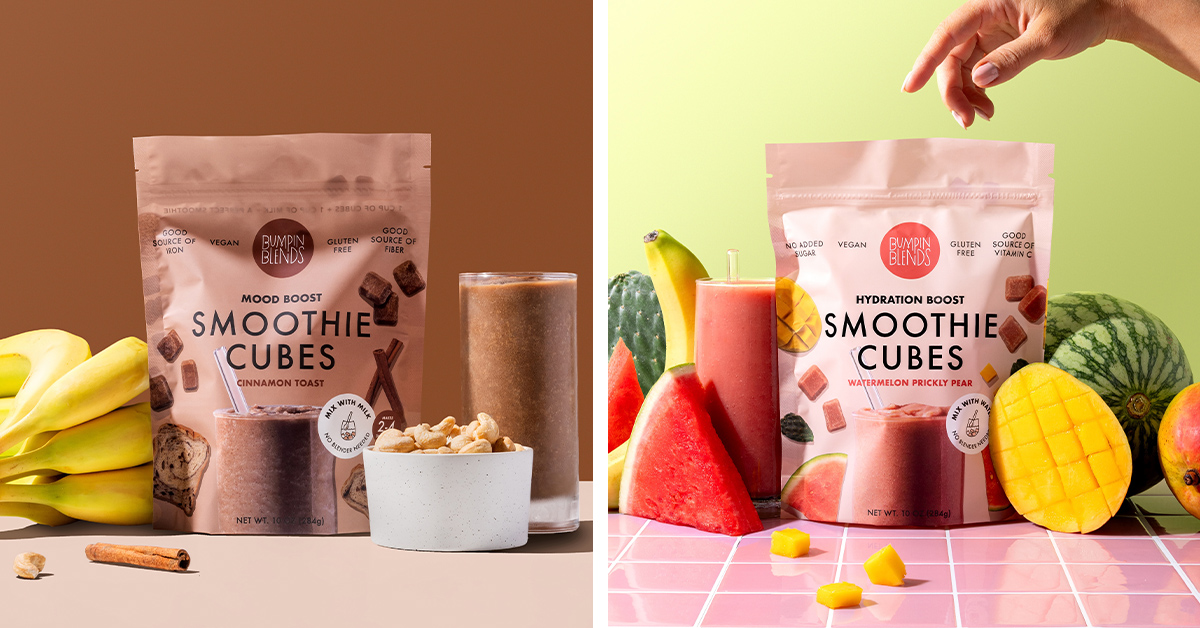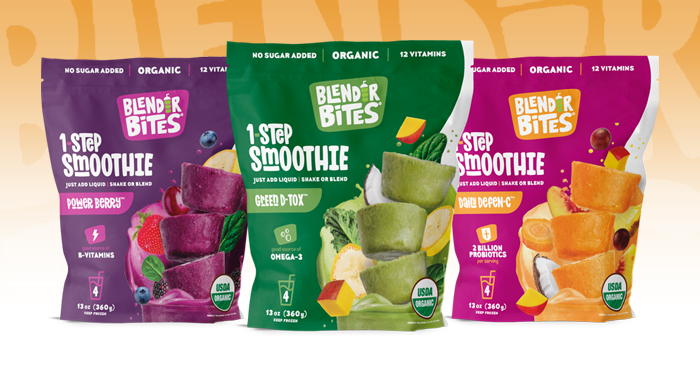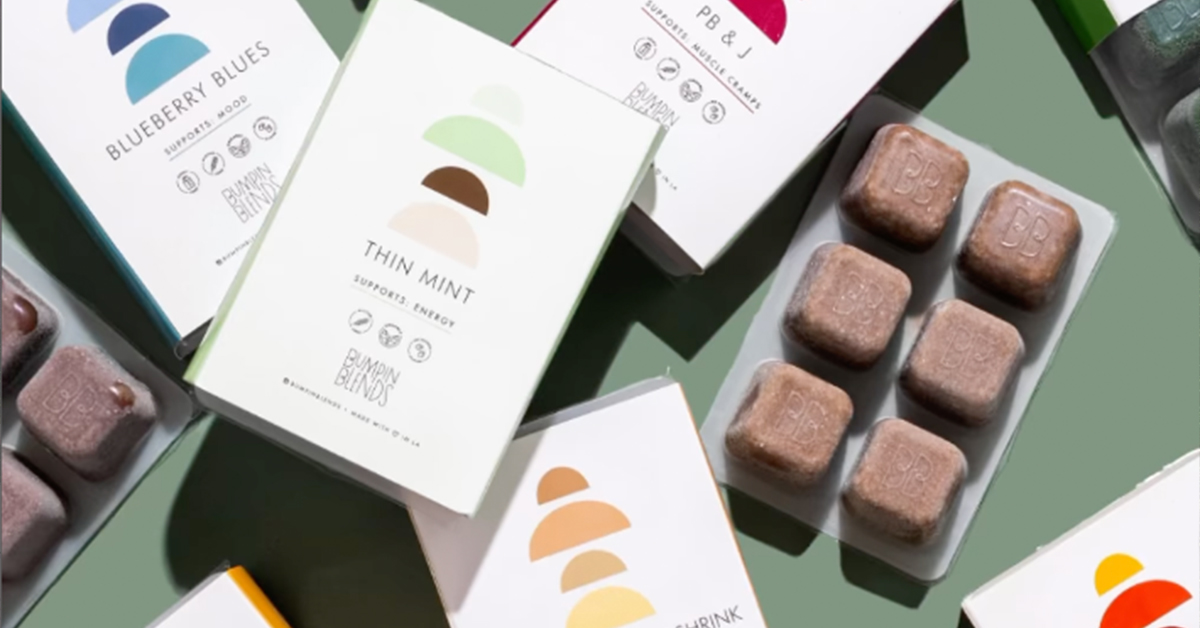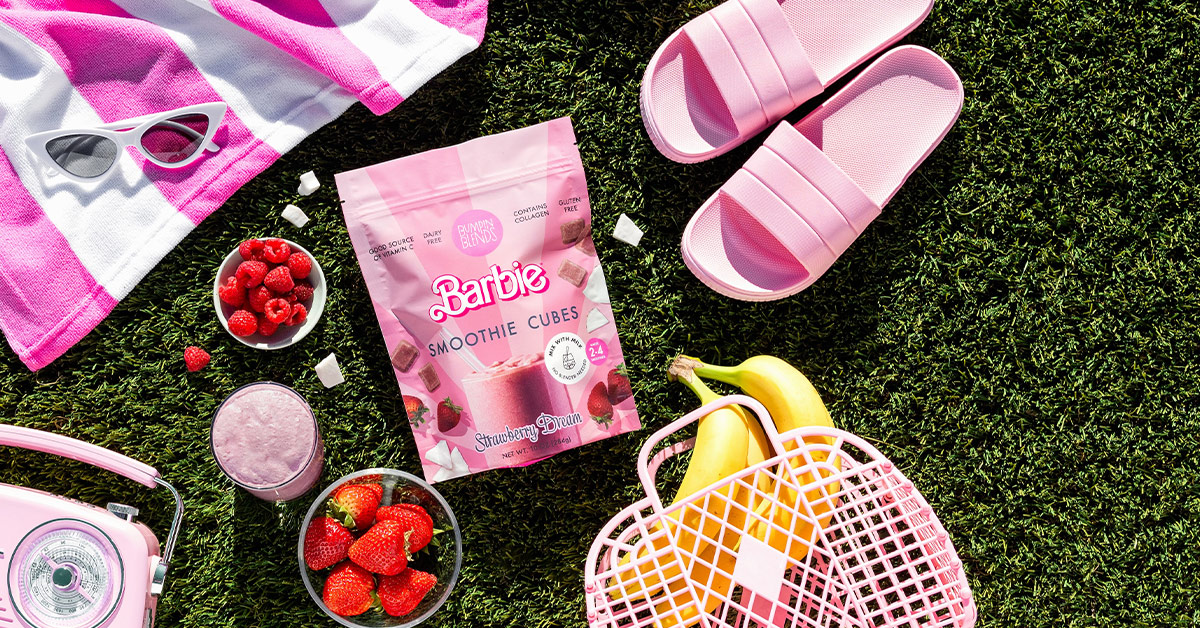Cubes Over Kits: Brands Stake Out Territory In Frozen Smoothies

During the pandemic, juice bar owners took a hit as smoothie-loving customers sheltered in place like everyone else, but an emerging category grew out of the need for at-home, convenient nutrition in a ready-to-mix, frozen cube.
The smoothie cube category showed no signs of contracting as people slowly returned to gyms and offices. Instead, the budding brands making up this frozen set have blended in functionality and innovative approaches to customer acquisition to claim a niche in the category.
Smoothies are “all about convenience,” said Sally Lyons Wyatt, Circana global EVP and chief advisor of consumer goods and foodservice insights. “I don’t see the trend going anywhere anytime soon because it’s an easy way to drink your nutrition.”
Cubes as opposed to smoothie kits, characterized by frozen fruit mixes that still require a blender, lean into that convenience aspect while allowing “customization” and the “quest for multiple benefits,” Lyons Wyatt said.
Fruit and juice makers like Dole, Seal the Seasons, Sambazon and Pitaya have jumped into the frozen smoothie kit and cube category while startups like Blendtopia, Evive and The Bomb Co. are carving out terrain in the growing trend.
From DTC To Barbie
Bumpin Blends began in 2019 during the pandemic as a “maternity leave experiment” for registered dietitian Lisa Mastela.
“I thought: ‘In between breastfeeding, I’ll just start a company,’” she said laughing. “But I strapped my baby to me in one of those little wraps, cleaned out my whole garage and turned it into this smoothie, mad scientist lab.”
The ultra premium-positioned company started in a direct-to-consumer model with Mastela hand-delivering “ludicrously expensive” smoothies to her subscribers around Los Angeles.
As the business quickly developed a following, drawing social posts from influential celebrities like Miranda Kerr and Chrissy Tegan, Bumpin Blends found itself shipping outside of L.A. within four months of launching.
The smoothie company found a niche offering specific functionality that could be individually tailored to each customer through its online quiz, offering cubes that could help with sleep issues, anxiety and inflammation, among a host of other needs.
In early 2022, Mastela saw shoppers returning to grocery stores in-person and decided she needed to scale into retail. When she began weighing her options as a premium-positioned, niche category brand, distributing through the specialty or natural channels would be expensive when accounting for free-fill, slotting fees and promotional requirements, she said.
“The Erewhons, Gelsons and Bristol Farms didn’t make a lot of sense for me financially,” she said. “When I crunched the numbers, I realized I just couldn’t make the math work. How am I supposed to make money doing that?”
Instead, Bumpin Blends targeted Costco as its first retail partner where smaller brands have a “clear and consistent” understanding of how the relationship works and when brands will be paid. The one-off nature of many Costco deals allowed Mastela to also experiment with what was working with packaging and brand reception from consumers.
“We did a $500,000 PO (purchase order) with Costco, and just surveyed customers nonstop. We were always in another Costco harassing customers who bought or walked by the product,” she said.
What she realized was that the brand’s minimalist DTC packaging was not drawing customers to the brand so she did a brand refresh solely on the retail SKUs that called out more clearly the functionality and value propositions of the brand.
That learning led the company to find “anchor accounts” in Target and Walmart, where the brand recently launched into 1,400 stores with four retail products (there are still over 30 varieties available online) including its Barbie licensed collagen-fortified flavor, Strawberry Dream.
The Mattel licensing deal came from an opportunity connected to Bumpin Blends and Walmart. Over the winter, Mastela found herself waiting on a delayed flight from LAX airport to Bentonville, Ark., as she was readying to pitch at Walmart headquarters.
Describing that route as a “CPG brand’s networking dream,” Mastela decided to position herself next to a group of Mattel executives she saw waiting for her same flight. She got to talking to whom she would later find out is the VP of global brand partnerships about sleep issues with their kids.
The conversation moved to Barbie licensing deals and next thing Mastela knew she was being asked if Bumpin Blends would be interested in a food brand partnership with Mattel.
“I said, ‘Yep,’” she said. “Could we handle a Barbie partnership? Not at all, but we figured it out.”
Fixing The At-Home Smoothie Category
Operating in frozen comes with familiar challenges whether its cold-chain distribution or the limited amount of shelf space, but for the grocery smoothie category the premium nature of pricing might be impacting consumer demand.
Premade frozen smoothie dollar sales were down 31.7% year-over-year with unit volume down 31.1% in the last 52 weeks ending August 11, according to SPINS data. Bearing in mind that premade smoothies are not the same product as smoothie cubes or kits, the data is a reflection of an insight heard from another brand in the cube category.
“The category is not working” is the message Blender Bites founder Chelsie Hodge has heard from many retail buyers.
“When I say the category, I’m talking about the smoothie kits that are just a bag of frozen fruit with a functional cube,” she said. “They’re trying, but they’re very slow to innovate. Buyers have been pretty transparent with me in that the category is moving so fast, they’re looking for nimble brands to innovate.”
Launched in a pre-pandemic 2016, the Vancouver, Canada-based brand took a retail-first approach to growth and is only now building out an ecommerce business. The category has changed since its early days, and Hodge insists that grocery shoppers have become conditioned to demand functionality and convenience from at-home frozen smoothies, she said.

Understanding those needs led the brand to partner with Orgain earlier this year on a Superberry Sport product using the Nestlé-owned brand’s protein. Blender Bites has tried to innovate into the Frappé category with three SKUs of functional frozen coffee drinks that have had less initial success than Hodge hoped.
“We’re still figuring it out,” she said.
But it has been all part of the learnings of “resurrecting” the category. Hodge points to the brand’s growth in retail as a testament to its success. It is in 7,000 stores across Canada and the U.S. including national distribution with Publix, Walmart, Albertsons, Safeway and H-E-B. Along with launching into online retail, Blender Bites is also negotiating with some “major foodservice accounts” to bring the product to hotels and restaurants.
Another learning for Blender Bites has been that ultra-premium pricing doesn’t work. To adjust to consumer needs, the brand reduced their pack size from six to four smoothie “pucks” which brought the price down below the $10 mark.
“There’s a threshold in terms of what people will pay,” she said. “What works best in this category is an everyday low price because there’s such a high usage rate to this product. The opportunity for us is to come in and be functional and organic but also at the right price point.”



















